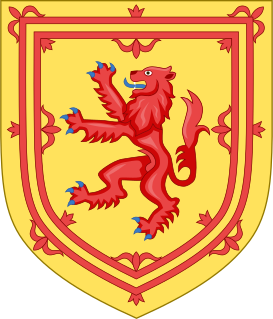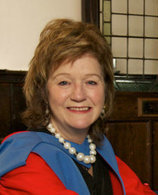Related Research Articles
Her Majesty's Inspectorate of Education (HMIe) was an executive agency of the Scottish Government, responsible for the inspection of public and independent, primary and secondary schools, as well as further education colleges, community learning, Local Authority Education Departments and teacher education.

The Office for Standards in Education, Children's Services and Skills (Ofsted) is a non-ministerial department of the UK government, reporting to Parliament. Ofsted is responsible for inspecting a range of educational institutions, including state schools and some independent schools, in England. It also inspects childcare, adoption and fostering agencies and initial teacher training, and regulates a range of early years and children's social care services.

The Health and Safety Executive (HSE) is a UK government agency responsible for the encouragement, regulation and enforcement of workplace health, safety and welfare, and for research into occupational risks in Great Britain. It is a non-departmental public body of the United Kingdom with its headquarters in Bootle, England. In Northern Ireland, these duties lie with the Health and Safety Executive for Northern Ireland. The HSE was created by the Health and Safety at Work etc. Act 1974, and has since absorbed earlier regulatory bodies such as the Factory Inspectorate and the Railway Inspectorate though the Railway Inspectorate was transferred to the Office of Rail and Road in April 2006. The HSE is sponsored by the Department for Work and Pensions. As part of its work, HSE investigates industrial accidents, small and large, including major incidents such as the explosion and fire at Buncefield in 2005. Though it formerly reported to the Health and Safety Commission, on 1 April 2008, the two bodies merged.
Estyn is the education and training inspectorate for Wales. Its name comes from the Welsh language verb estyn meaning "to reach (out), stretch or extend". Its function is to provide an independent inspection and advice service on quality and standards in education and training provided in Wales.

The Department for Work and Pensions (DWP) is the British Government department responsible for welfare, pensions and child maintenance policy. As the UK's biggest public service department it administers the State Pension and a range of working age, disability and ill health benefits to around 20 million claimants and customers. It is the second largest governmental department in terms of employees, and the largest in terms of expenditure (£187bn).

Executive agencies are established by ministers as part of Scottish Government to carry out a discrete area of work. They form an integral part of the Scottish Government, but have a specific, well-defined remit. They are staffed by civil servants and headed by a Chief Executive, who is a civil servant, and are directly accountable to the government.
The Healthcare Commission was a non-departmental public body sponsored by the Department of Health of the United Kingdom. It was set up to promote and drive improvement in the quality of health care and public health in England and Wales. It aimed to achieve this by becoming an authoritative and trusted source of information and by ensuring that this information is used to drive improvement. The Commission was abolished on 31 March 2009 and its responsibilities in England broadly subsumed by the Care Quality Commission.
The Commission for Social Care Inspection was a non-departmental public body and the single, independent inspectorate for social care in England. Its sponsor department was the Department of Health of the United Kingdom government. It incorporated the work formerly done by the Social Services Inspectorate (SSI), the SSI/Audit Commission Joint Review Team and the National Care Standards Commission (NCSC).

The Department for Levelling Up, Housing and Communities (DLUHC), formerly the Ministry for Housing, Communities and Local Government (MHCLG), is the UK Government department for housing, communities, local government in England and the levelling up policy. It was established in May 2006 and is the successor to the Office of the Deputy Prime Minister, established in 2001. The department shares its headquarters building, at 2 Marsham Street in London, with the Home Office. It was renamed to add Housing to its title and changed to a ministry in January 2018, and later reverted to a government department in the 2021 reshuffle.

NHS Scotland, sometimes styled NHSScotland, is the publicly funded healthcare system in Scotland, and one of the four systems which make up the National Health Service in the United Kingdom. It operates fourteen territorial NHS boards across Scotland, seven special non-geographic health boards and NHS Health Scotland.

The Care Inspectorate is a scrutiny body which supports improvement. They look at the quality of care in Scotland to ensure it meets high standards. Where improvement is needed, they support services to make positive changes. The Care Inspectorate was set up in April 2011 by the Scottish Government as a single regulatory body for social work and social care services, including child protection and the integration of children's services. The new organisation took on work in these areas previously carried out by:
An inspectorate or inspectorate-general is a civil or military body charged with inspecting and reporting on some institution or institutions in its field of competence. Inspectorates cover a broad spectrum of organizations which vary in a number of terms, notably whether and to the degree to which they become involved in criminal investigations; the extent to which they achieve independence from the institutions being inspected; as well as the nature of their inspection regimes and reporting processes.
Musselburgh Grammar School a state-funded secondary school in Musselburgh, East Lothian, Scotland. It serves as the main secondary school for Musselburgh and the surrounding areas of Wallyford and Whitecraig. The school dates back to the sixteenth century, and the present building was erected in 1835. Until the 1950s, Musselburgh Grammar was a fee-paying school. In 2005, the school's roll was 1310. Jodie Hannan is the current head teacher.
Healthcare Improvement Scotland (HIS) is the national healthcare improvement organisation for Scotland. It is a public body which is part of the Scottish National Health Service, created in April 2011.

Professional Association for Childcare and Early Years (PACEY) is a charity and membership organisation based in London and working in England and Wales. A standard-setting organisation, it promotes best practice and support childcare professionals to deliver high standards of care and learning.

Education Scotland is an executive agency of the Scottish Government, tasked with improving the quality of the country's education system.
Social care in Scotland encompasses social work; care home services in the community for adults, children and young people; and services for young children, including nurseries and after-school care clubs.

Alexandrina Henderson Farmer Jay, OBE is a British academic. She is visiting professor at the University of Strathclyde and the independent chair of the Centre for Excellence for Children's Care and Protection (CELCIS).
Home care in the United Kingdom is supportive care provided in the home. Care may be provided by licensed healthcare professionals who provide medical care needs or by professional caregivers who provide daily care to help to ensure the activities of daily living (ADLs) are met. In home medical care is often and more accurately referred to as home health care or formal care. Often, the term home health care is used to distinguish it from non-medical care, custodial care, or private-duty care which is care that is provided by persons who are not nurses, doctors, or other licensed medical personnel.
The Flemish Care Inspectorate is a part of the Department of Welfare, Public Health and Family of the Flemish Government. The Flemish Government is the executive branch of the Flemish Community of Belgium. In Belgium, the Communities are responsible for the inspection of health and welfare services and establishments. The Care Inspectorate consists of two complementary divisions of the department: one for the inspection of services for disabled people and child care services, and one for the inspection of welfare services, health services and financial matters. Together, they inspect all services and establishments in these domains that are recognised, licensed or subsidised by the department or any agency associated with it. The Care Inspectorate also inspects disabled people who receive a so-called personal assistance budget or financial compensation for assistive tools.
References
- ↑ "PracticeGuide On the record – getting it right: Effective management of social work recording" (PDF). Social Work Inspection Agency. January 2010. p. 5. ISBN 978-0-9563265-4-6 . Retrieved 30 August 2014.
- ↑ Mackintosh, Katie (26 October 2009). "Interview: Alexis Jay". Holyrood magazine. Archived from the original on 3 September 2014. Retrieved 30 August 2014.
- ↑ Jay, Alexis (3 July 2005). "The job for the agency is now to 'do exactly what it says on the tin'". The Scotsman . Retrieved 3 September 2014.
- ↑ "A new regulator for Scotland: Social Care and Social Work Improvement Scotland". Archived from the original on 3 September 2014. Retrieved 30 August 2014.
- ↑ "Regulating Care". Scottish Government. 5 December 2013. Retrieved 5 July 2014.
- ↑ "About Us". Care Inspectorate. Archived from the original on 14 July 2014. Retrieved 5 July 2014.